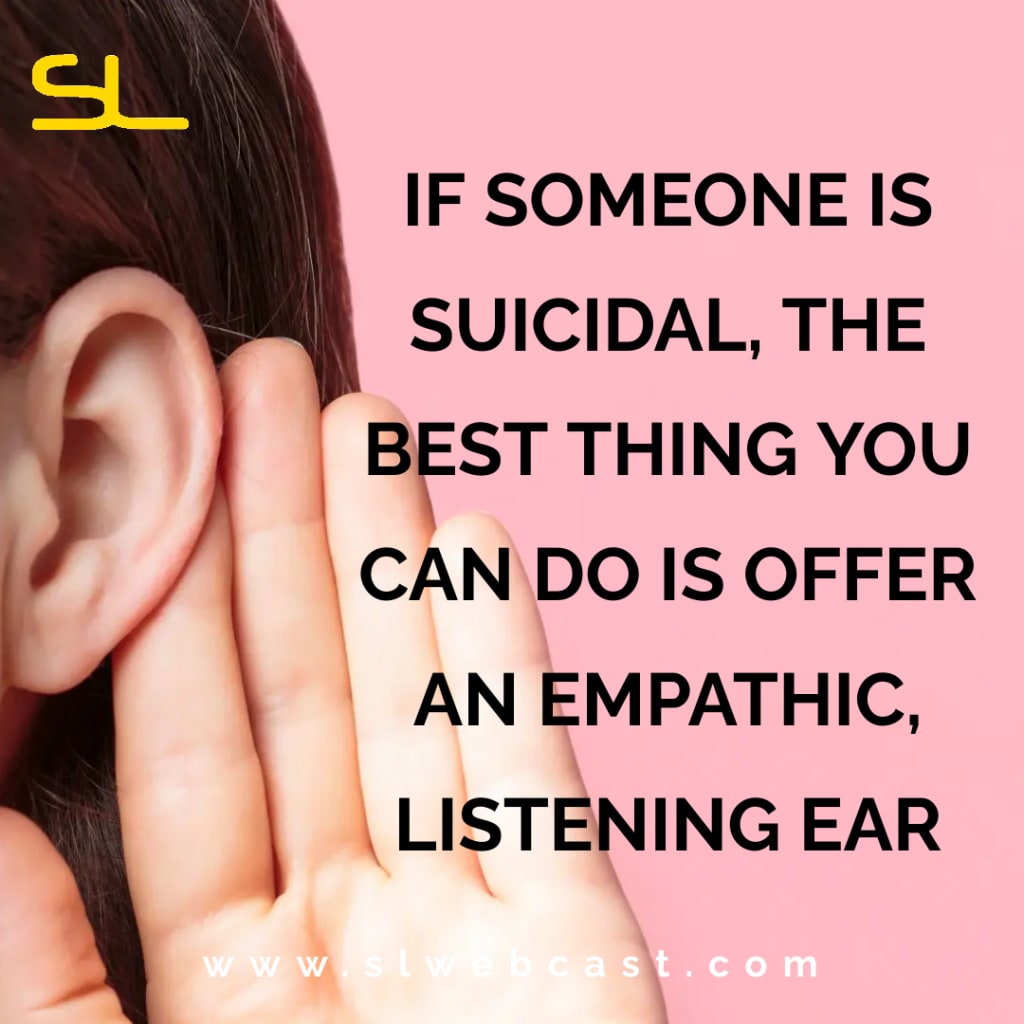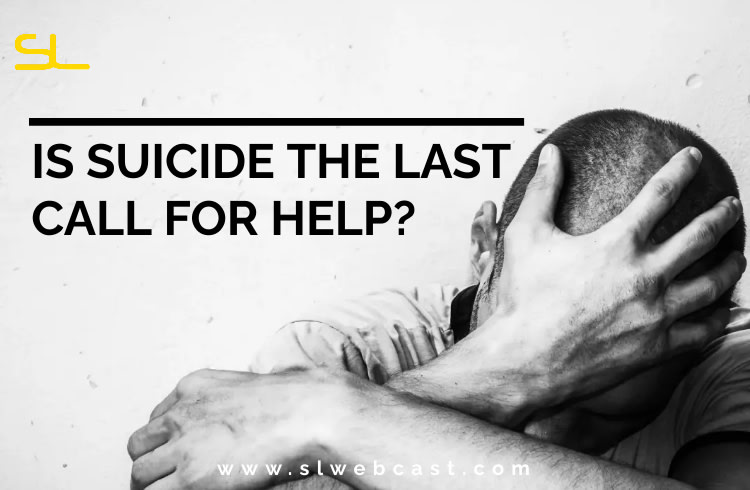Suicide refers to taking one’s own life. You might be struggling to control your intense emotions. Despite your perception that things would never get better, you are not alone. A lot of people consider suicide. Even considering suicide does not guarantee that you would act on it. You are not “going insane,” despite what you may think. Suicidal thoughts are frequently a sign that you desire to go away. Many people believe that people who are severely depressed, or even mildly depressed, commit suicide. People believe that depression is the cause of suicide because individuals typically exhibit symptoms of depression such as sadness and hopelessness. When it comes to the reasons for their death, these symptoms are self-evident. Stress is a feeling that everyone experiences, but how people deal with it varies depending on the situation. Many people experience stress as a result of their surroundings or their mental state.
Suicide is a common occurrence in all demographics. There is no race, gender, or ethnicity that has a significantly higher rate of suicide. The majority of people believe that suicide is the solution to all of their problems. Most people are unaware that committing suicide will cause them more pain when the time comes to answer God. Suicide has claimed many lives in this world when an alternative solution could have been found. Everyone has times in their lives when everything seems to go wrong. Hardships pile up, one misfortune follows another, resentment and frustration become unbearable, and a person may feel as if he or she cannot take it any longer. Every person has his or her coping strategy for such times: some turn to alcohol for relief, others engage in compulsive behaviours such as excessive shopping or eating, and still, others try to stay in one place and wait for the streak of failures to end. However, some people’s psyches are too fragile or worn out to withstand adversity for a variety of reasons. When life gets hard they try to commit suicide to completely get rid of their problems. Most people commit suicide for a variety of reasons, but the three most common are relationship problems, family issues, and mental illness.

An emotional impulse is yet another reason for suicide. The majority of impulsive suicides occur while under the influence of drugs or alcohol. When a person is sober, he or she may not have suicidal thoughts; however, when under the influence of substances, he or she may have an impulsive thought of killing himself or herself and do so. Substance abuse, in conjunction with underlying psychological processes and certain personality traits, may contribute to this type of suicide; thus, if there have been signs of a person behaving recklessly while under the influence of alcohol, these signs should be addressed with all due diligence.
It is critical to understand that suicidal thoughts, intentions, and tendencies are not fatal. Such psychological conditions can be effectively treated by modern medicine, specifically psychiatry and psychology. There is always a way out of any situation, even if a desperate and broken person cannot see it. Friends and family attention and care, trust and a kind attitude, psychotherapy, carefully prescribed medications, and time are all effective treatments for depression and other factors that lead to suicide. Mental disorders can be treated or managed: patients with schizophrenia, perhaps the most severe mental illness known today, can lead normal lives.
If you notice suicide warning signs in someone you know, you may wonder if you should intervene. It’s natural to feel uneasy or afraid in such situations. Anyone who talks about suicide or exhibits other warning signs, on the other hand, requires immediate assistance—the sooner the better.
It can be extremely difficult for anyone to talk to a friend or family member about their suicidal thoughts and feelings. However, the best way to determine whether someone is suicidal is to ask. You cannot make someone suicidal by demonstrating your concern. Allowing a suicidal person to express their feelings can provide relief from loneliness and pent-up negative emotions, and may prevent a suicide attempt. Many people who commit suicide do not reveal their true feelings. Suicide has a negative aftereffect. Friends will always be sad because they believe they did something wrong. To be a good friend, look for warning signs such as suicidal talk, self-harm, risky behaviour, and drug or alcohol abuse. You can save someone’s life by paying attention to these observations. To summarize, suicide is a critical topic that should be taken seriously when intervening in anyone’s life. It is critical to be able to recognize the warning signs that can lead to attempted or successful suicide.

If someone is suicidal, the best thing you can do is offer an empathic, listening ear. Let your loved ones know they are not alone and that you care about them. However, do not accept responsibility for your loved one’s healing. You can assist, but you cannot make a suicidal person better. They must make a personal commitment to recovery. Helping someone who is suicidal requires a great deal of courage. Seeing a loved one struggle with suicidal ideation can elicit a wide range of difficult emotions. Anyone can commit suicide for a variety of reasons, including depression and hopelessness. If you believe that someone is suicidal, there are several things you can do to help them: call the doctor and talk to them openly about their problems. suicidal people are deeply conflicted about ending their own lives. They wish there was an alternative to suicide, but they just can’t see one and in the process, they forget about the misery that their death brings to other people. While you’re assisting a suicidal person, don’t forget to look after yourself. Find someone you can talk to about your feelings and get support from—a friend, family member, teacher or counsellor.

A government-approved charity who had been working in the field of prevention of suicide in Sri Lanka and giving emotional support to people who are in distress and despair for the past 46 years (1974 -2020)
Their Services – include…
- Befriending suicidal people and others who are in distress (face to face) by mail, telephone, or via chat.
- Conduction awareness programmes on the prevention of suicide, and developing, coping skills to deal with everyday stress and strains in life. Befriending institutions on request.
- Giving emotional support to drug dependents and their families.
- Rural and outreach programmes (hospitals, Schools, house-to-house etc.)


